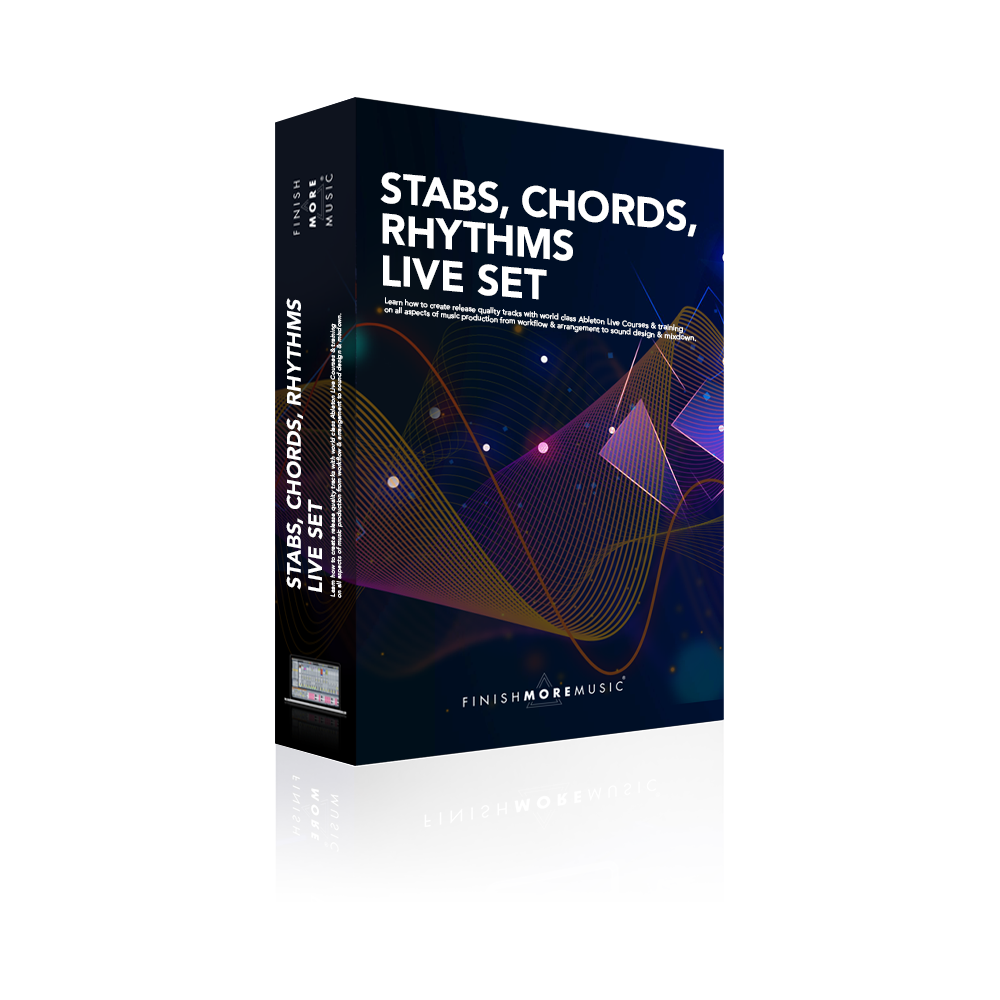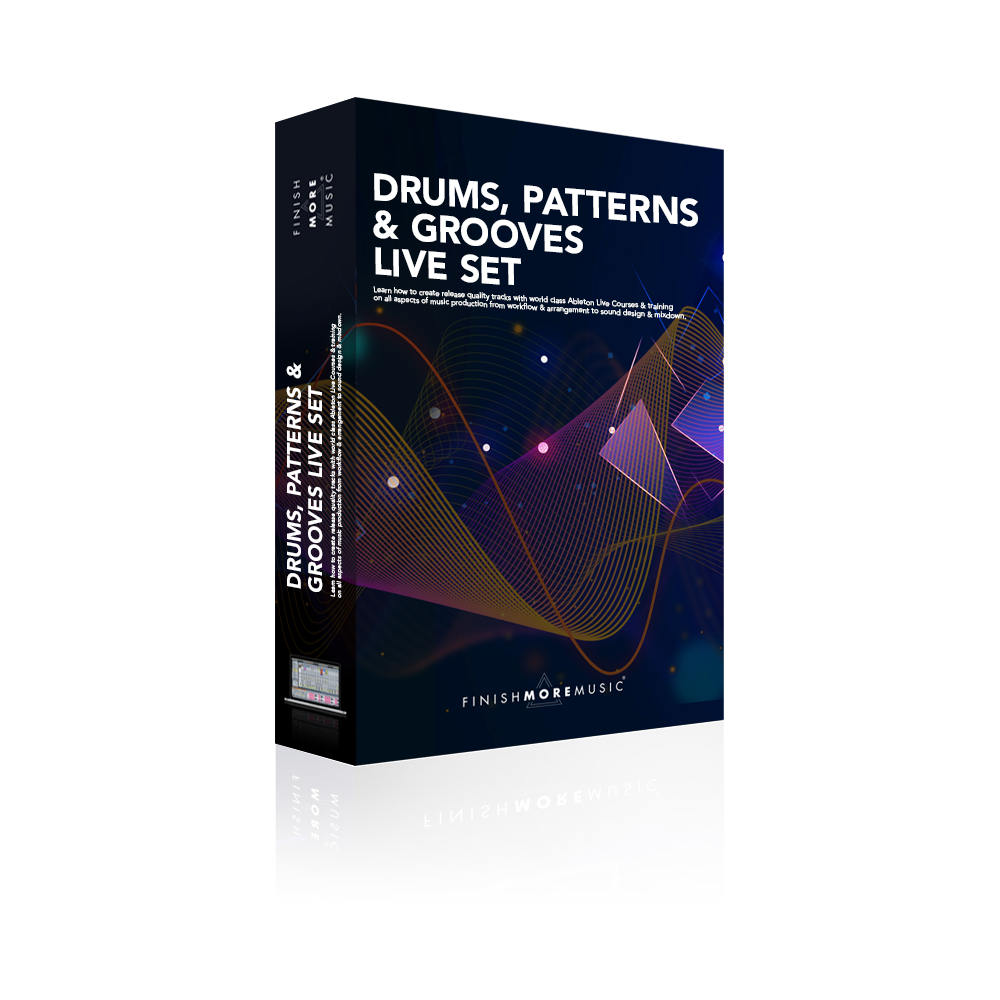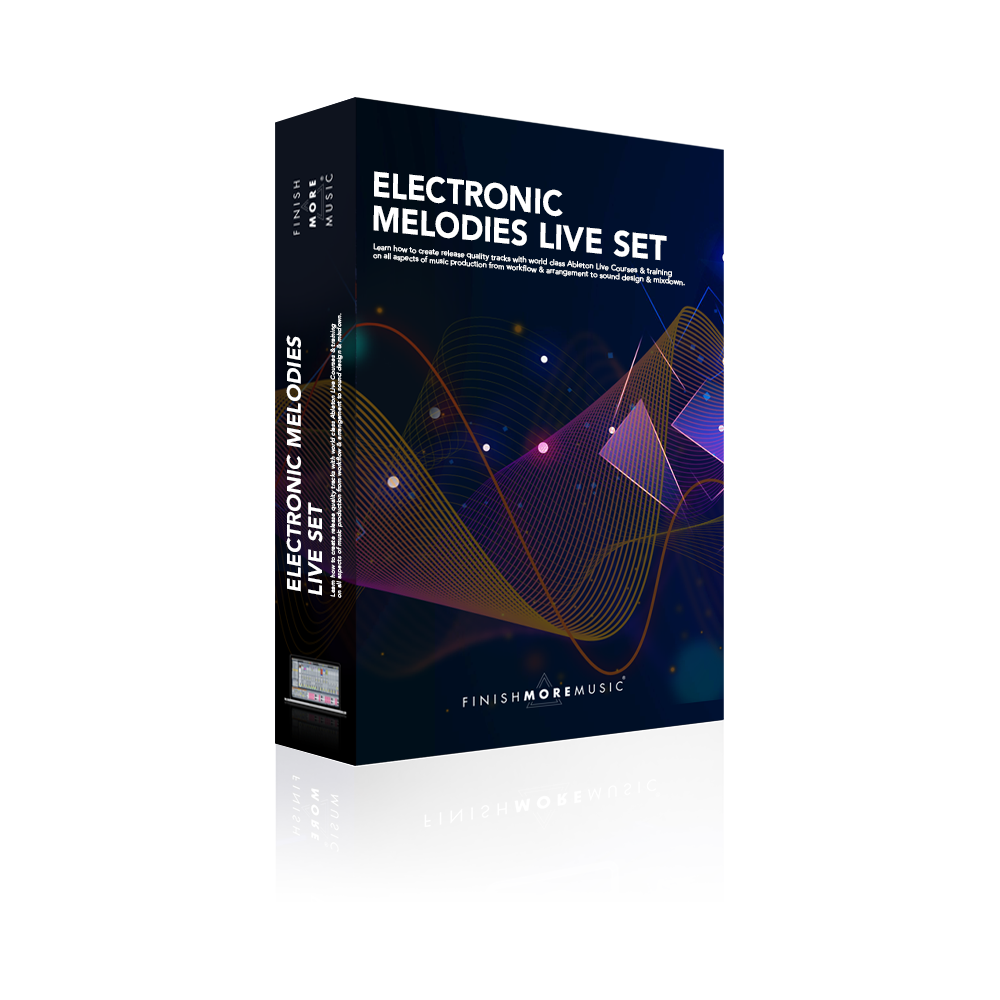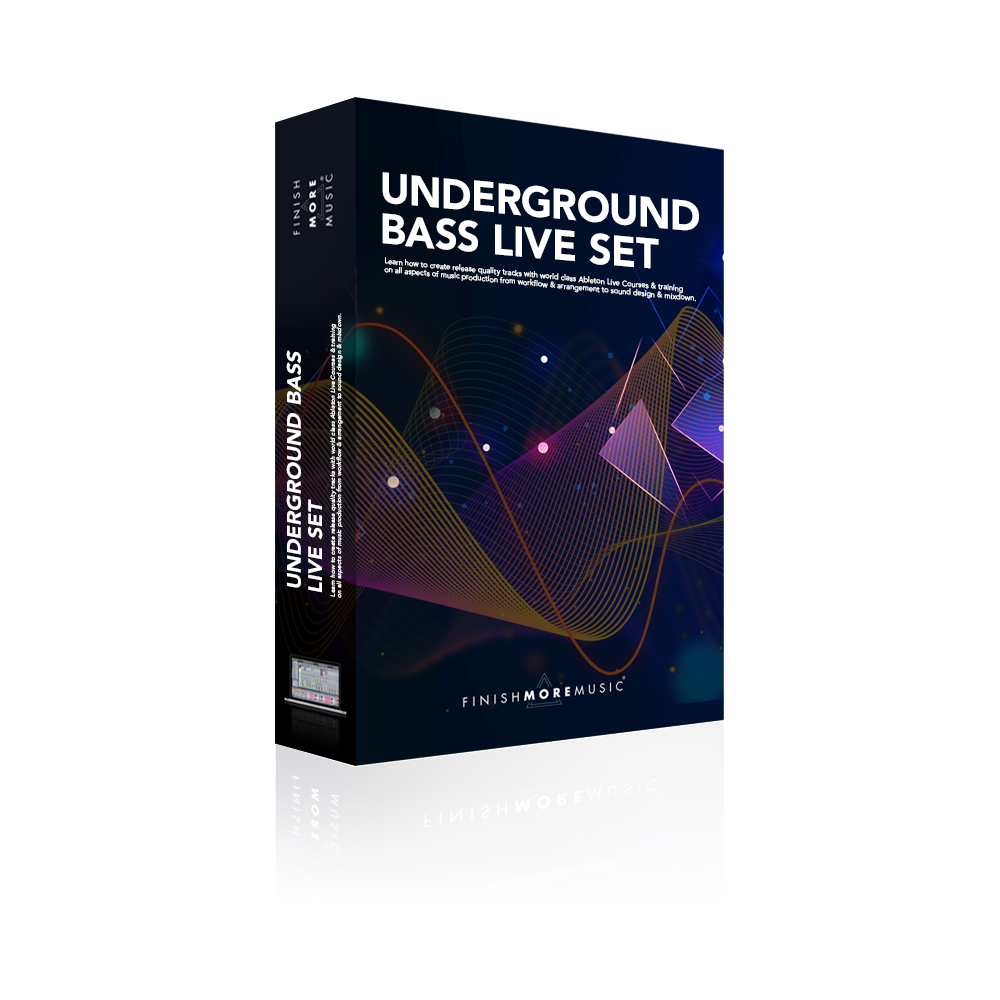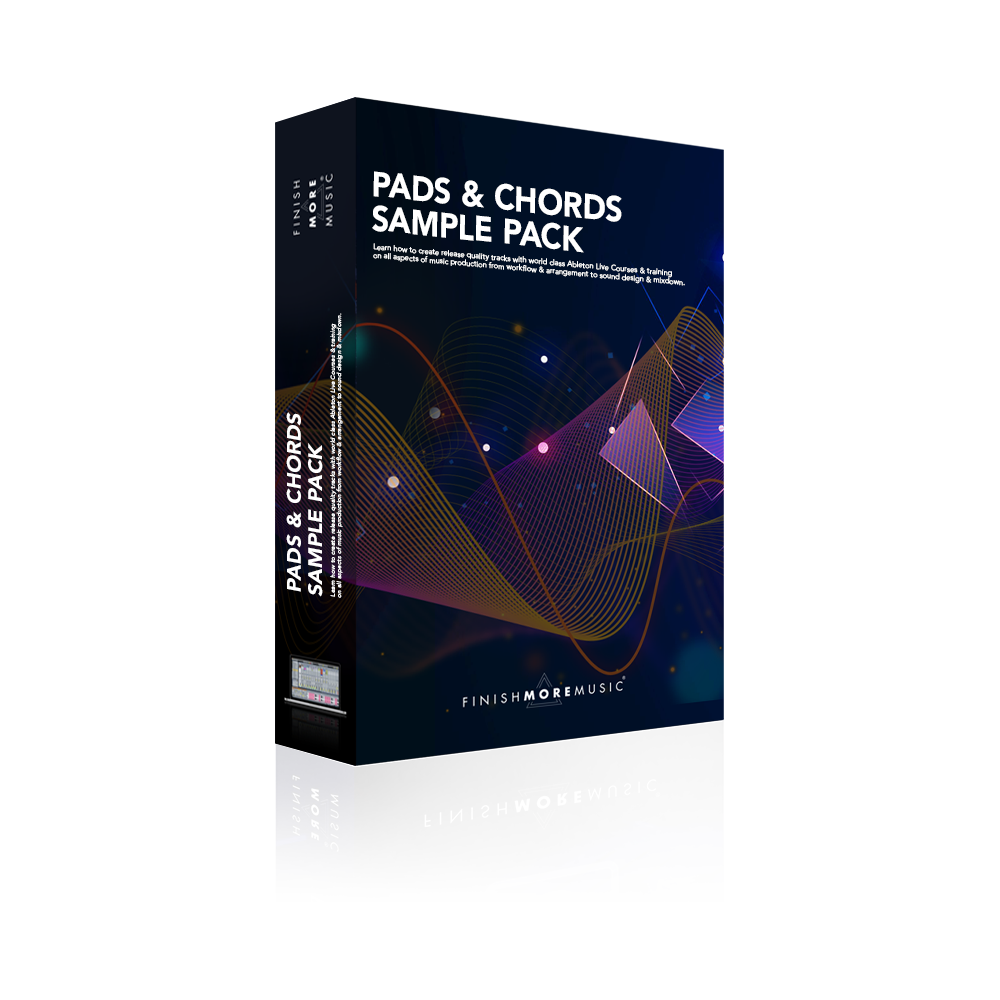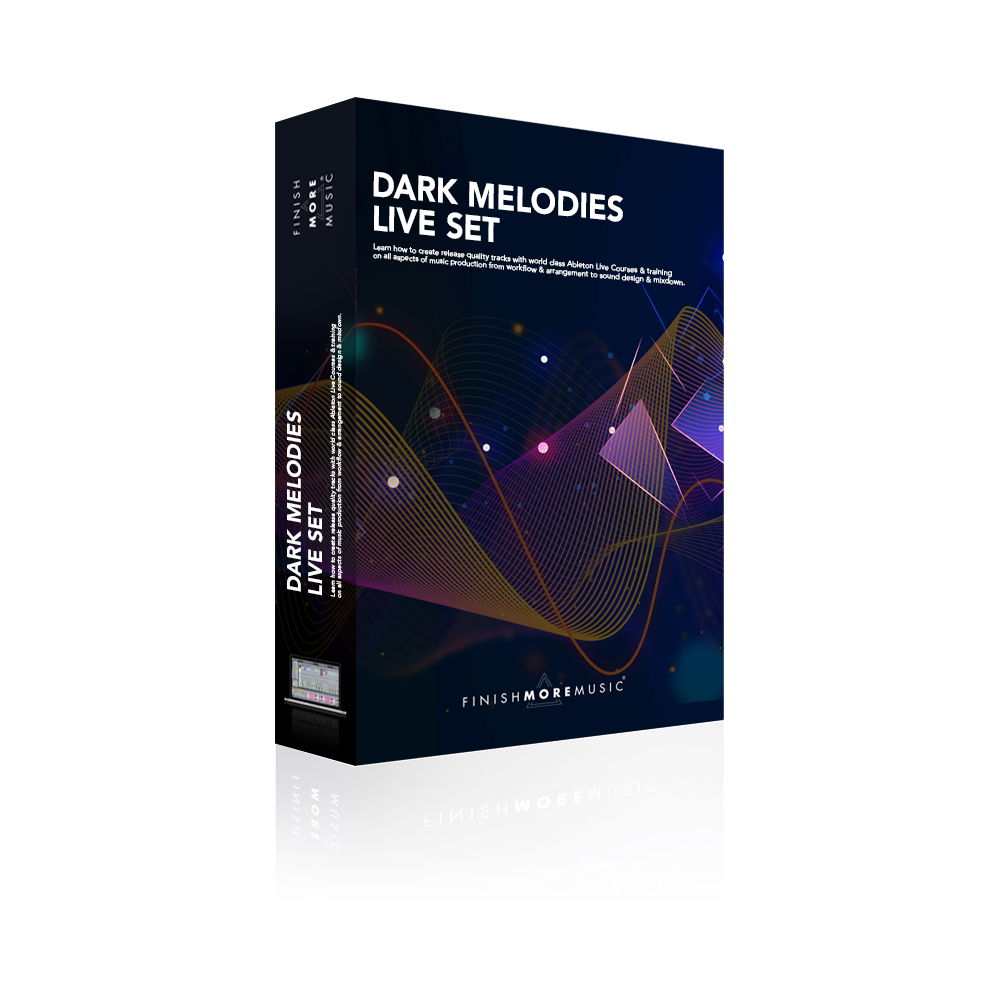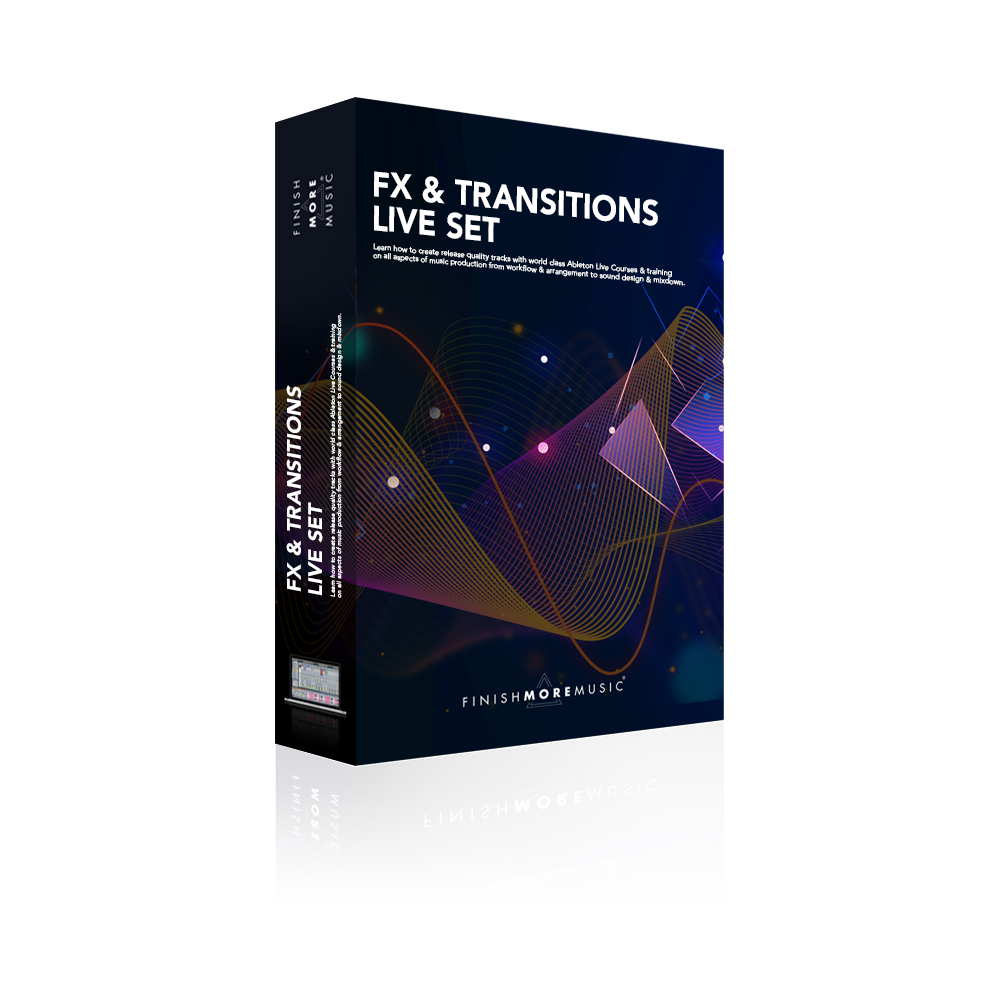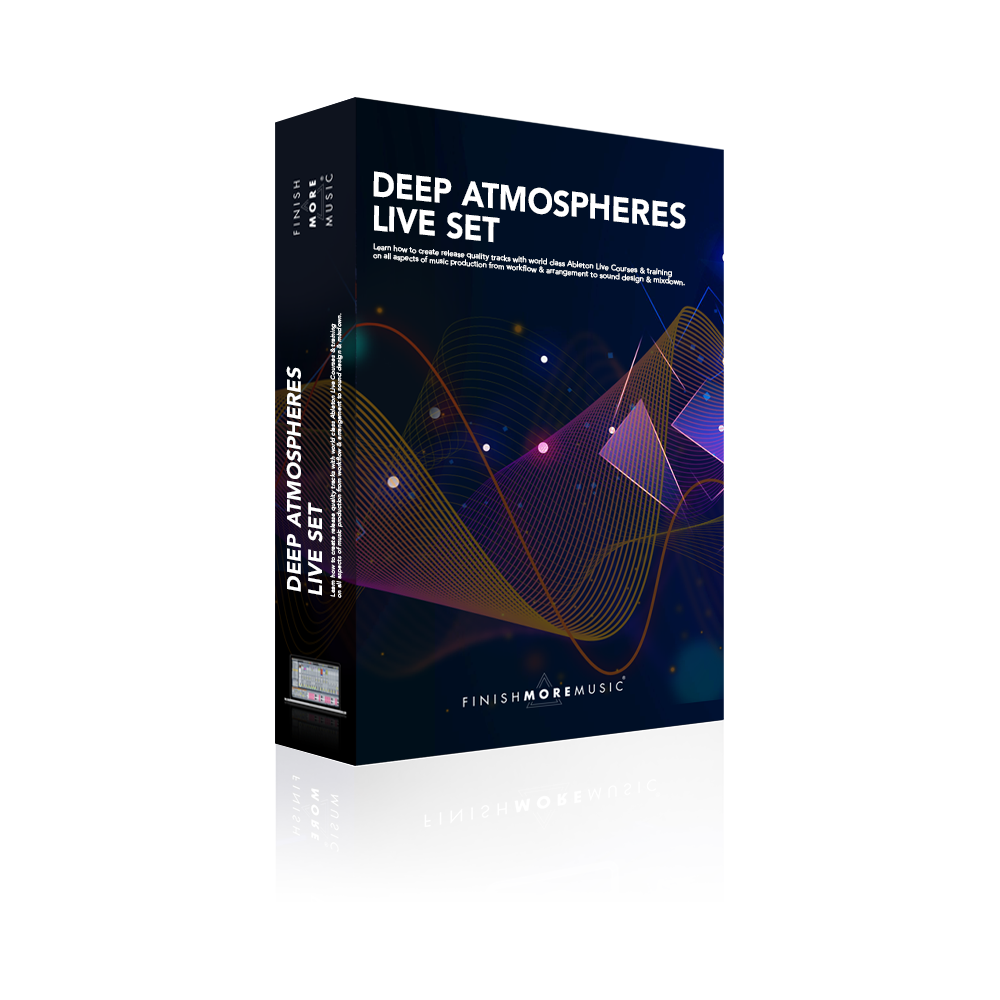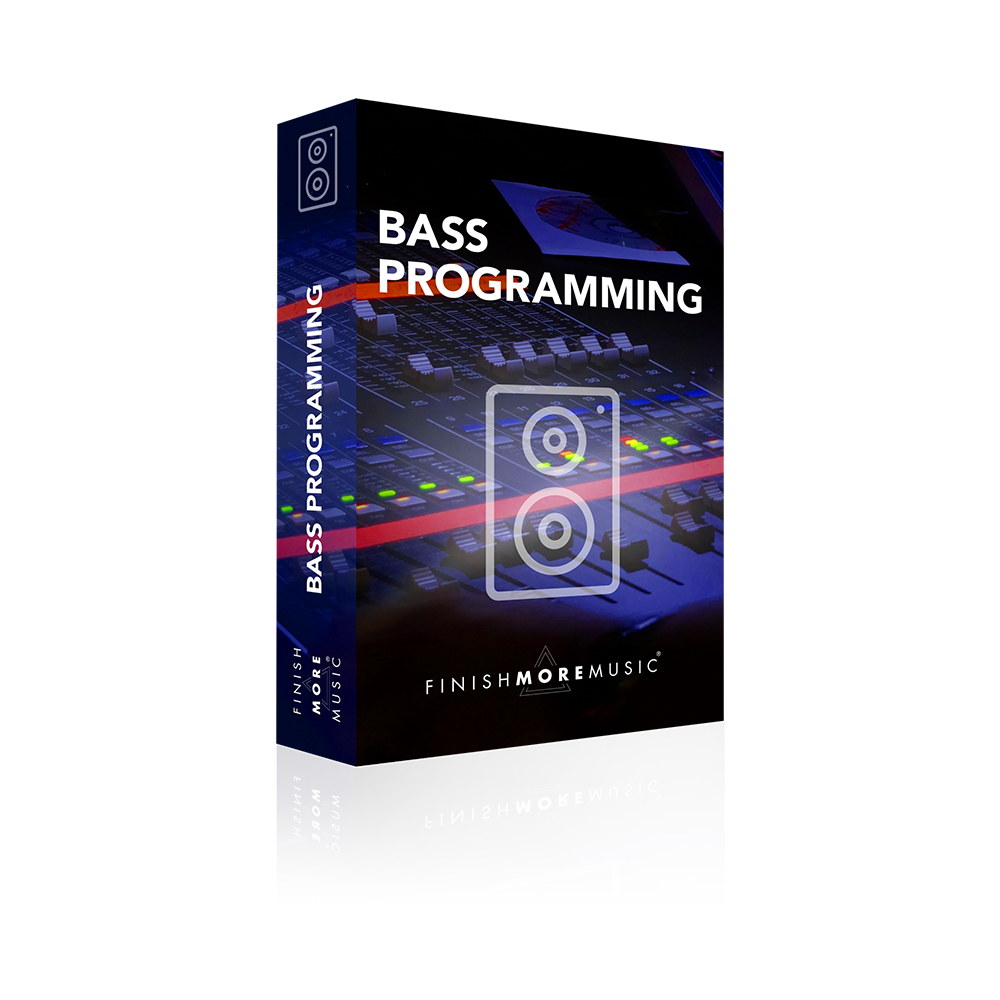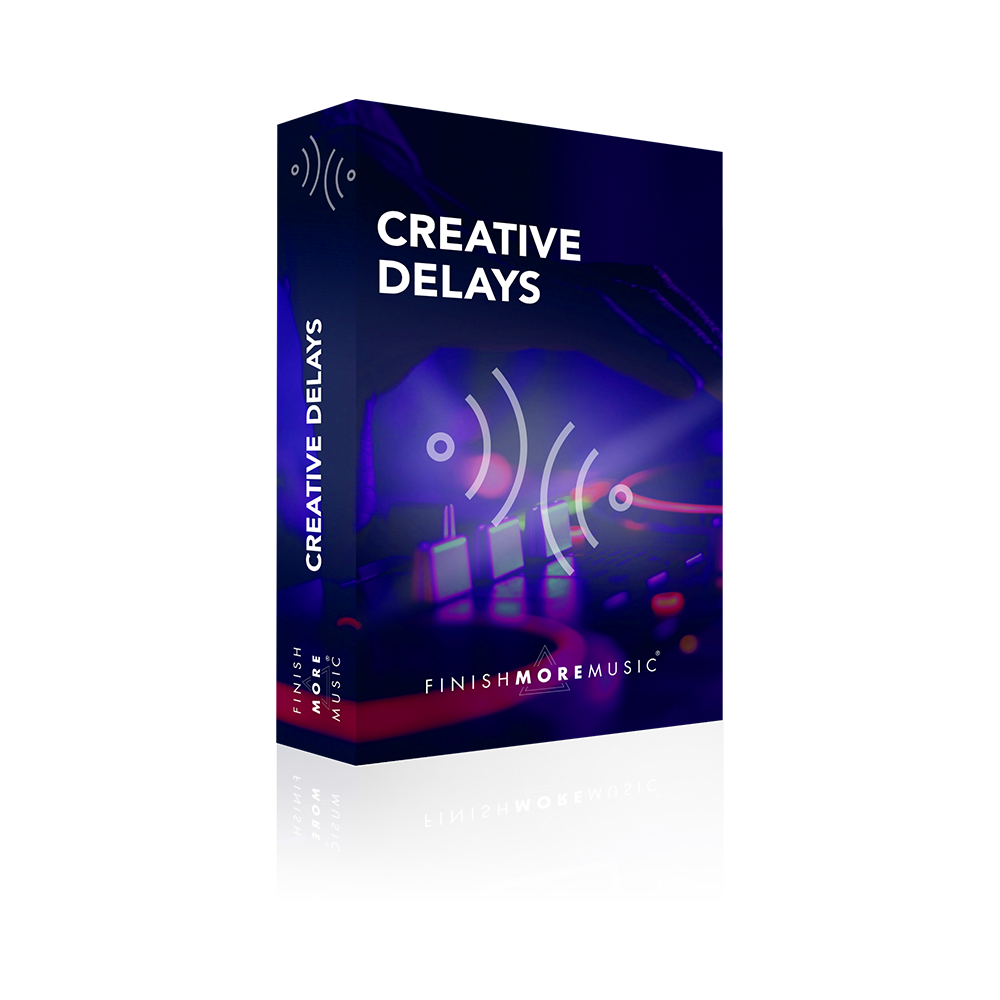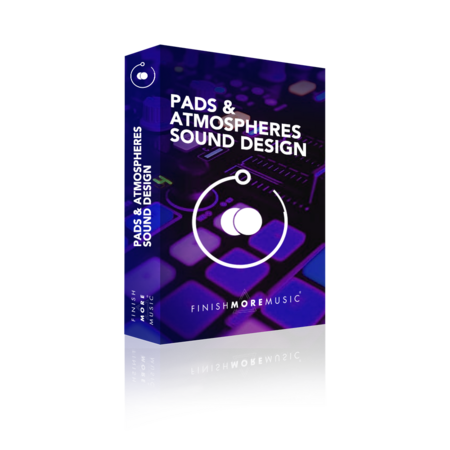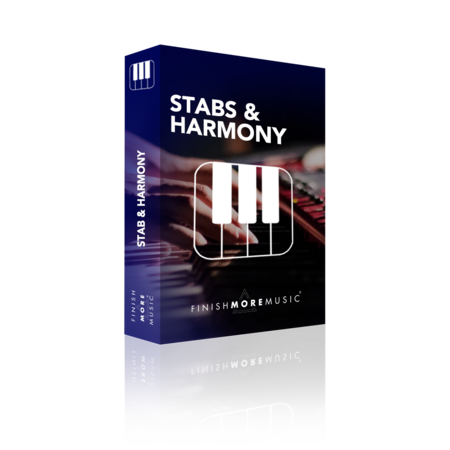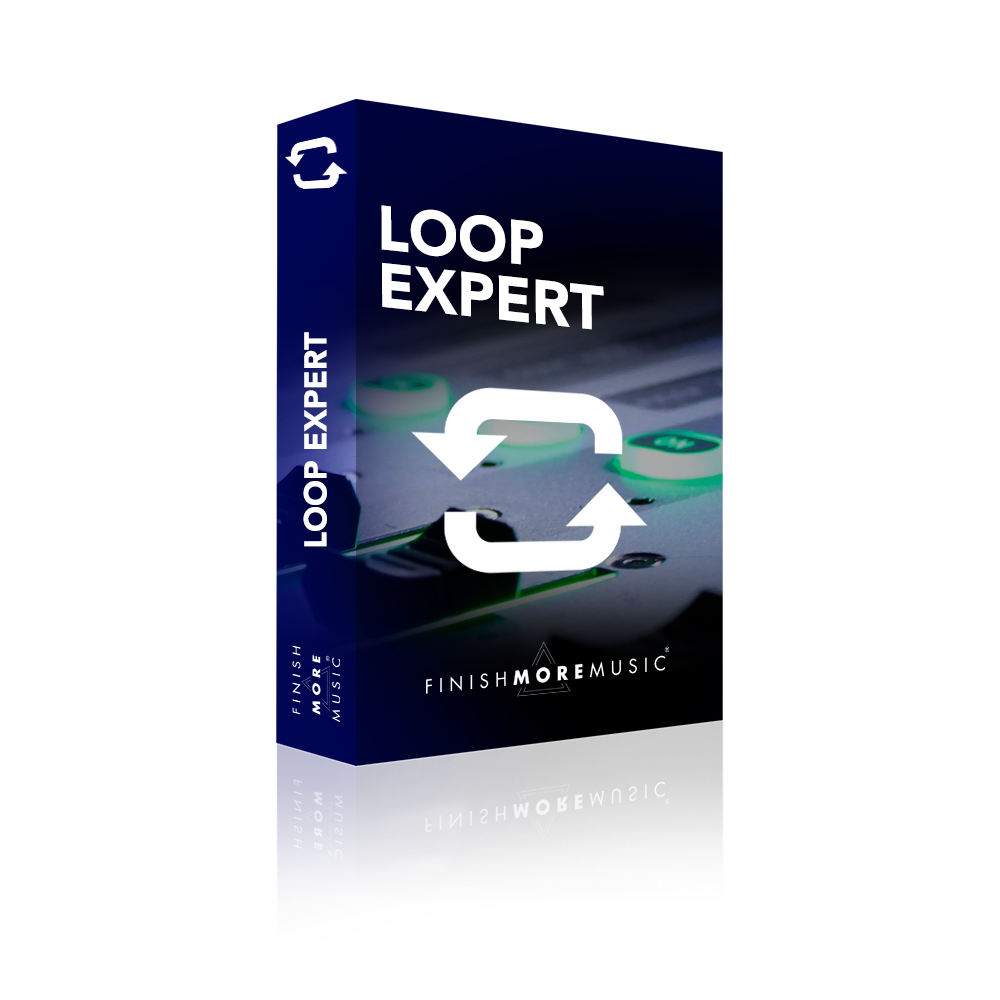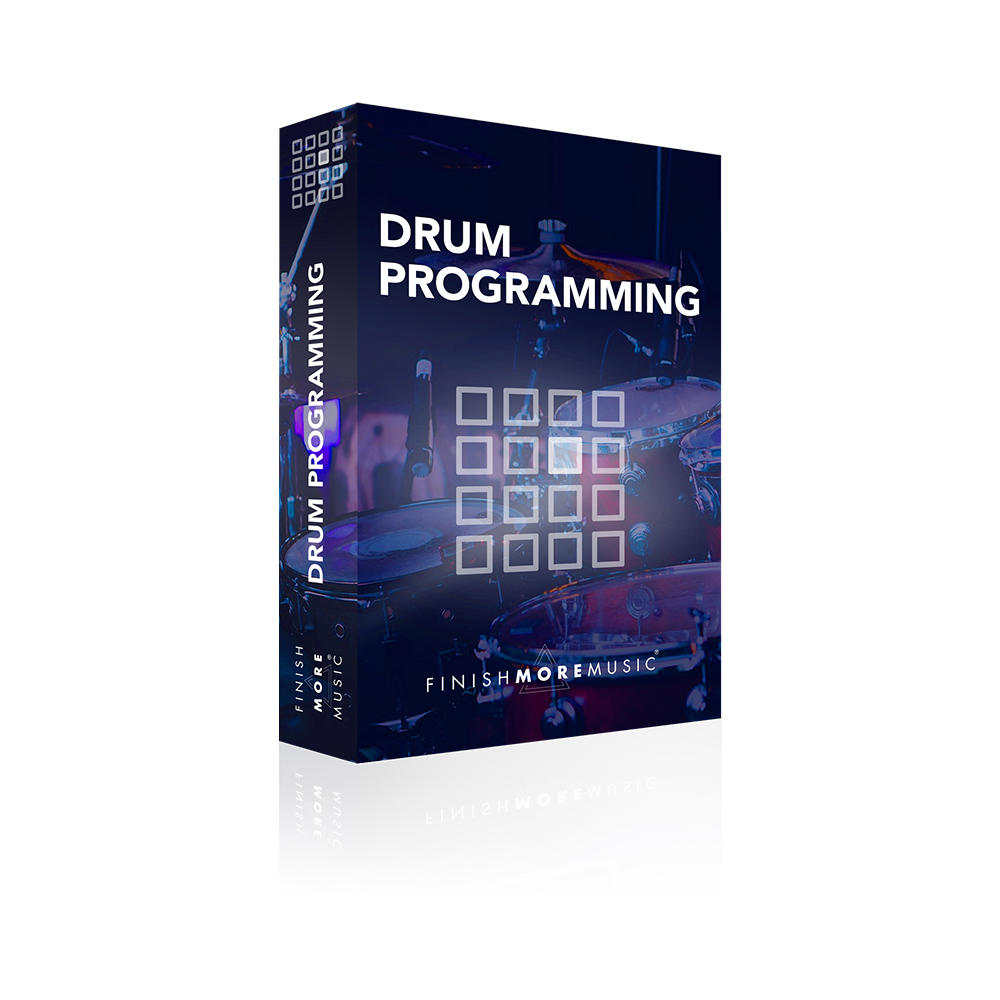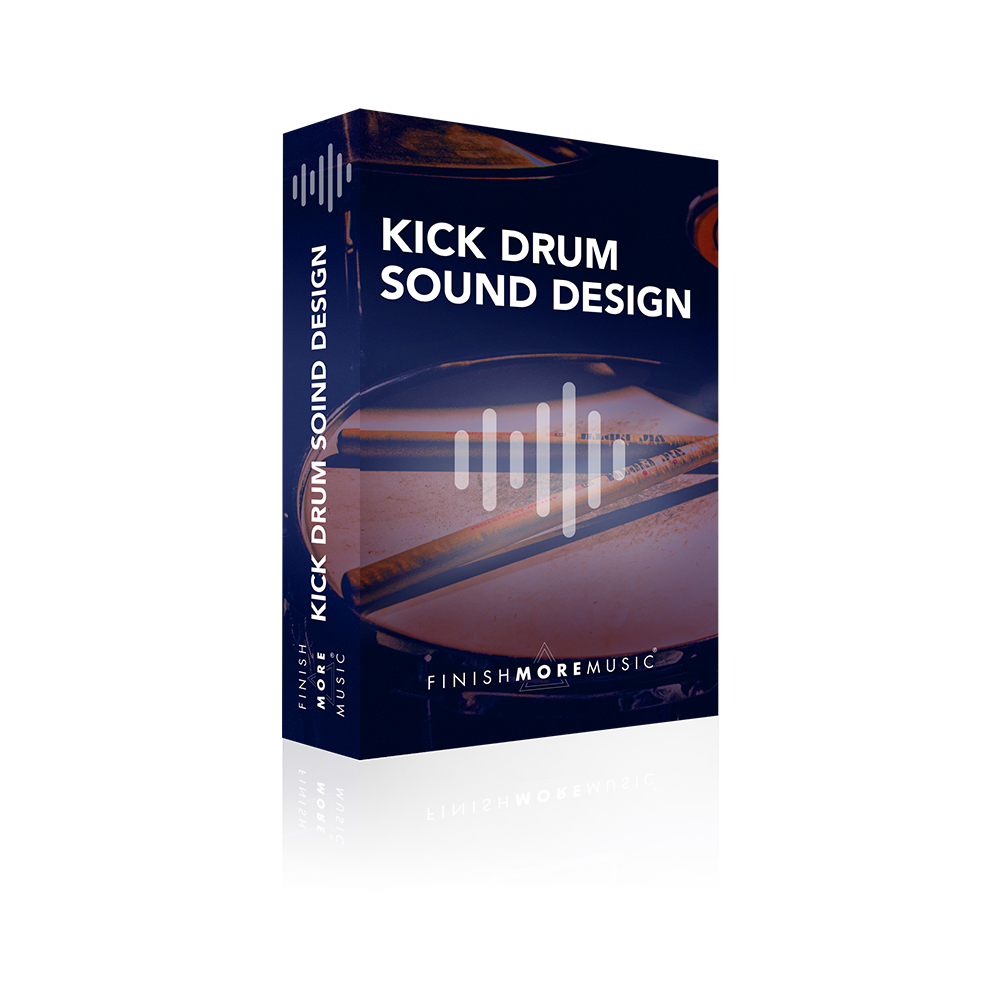FMM074- Failing To Succeed – Transcript
Hi, I’m Keith Mills. And this is episode number 74 of the Finish More Music Podcast. And in this episode, we’re going to be talking about failure, mistakes, getting it wrong, all things that are absolutely essential if you want to create anything original, but interestingly, all things that many people try to avoid. So in this episode, we’re going to consider why is it that some people are able to embrace failure and keep moving forward whilst others stagnate, avoid going into the studio and ultimately give up on their dreams of being a music producer.
This is the Finish More Music Podcast, a show for underground dance music producers who want to finish more and better music, and to share it with the world.
My name’s Keith Mills, and every week, we’ll dive into the mindset and creative strategies that will help you to move further and faster along your music production journey.
So I’m pretty pleased with myself because I just came up with a title for this literally moments before hitting record. So the title as you will have seen is Failing to Succeed. And why I’m so pleased about this is because it’s got a double meaning that fits perfectly with what we’re going to talk about in this episode. So I’m pretty pleased with it, but obviously as always, you be the judge. So here’s the deal. Failing to succeed can mean two things, right? It’s entirely possible to not achieve success, i.e. to fail to succeed. Simultaneously, no great success was ever achieved without failure along the way. So it’s a vital ingredient. And again, that means that we have to fail to succeed. So failing to succeed has this double meaning.
So then the question that we’re going to really be covering in this episode is what is the difference between the two? What is the difference between not succeeding and in failing in order to succeed? Why do some people continually fail and not see the success that they want with their music whilst others do fail and turn it into success? So they do get the results they want. Now, I think it’s best summed up with this really, really cool quote from Charles Kettering. And the quote is, “One fails forwards towards success. One fails forwards towards success.” Now I’m going to add my own little twist on this and really give you the main point of the whole podcast in one blast here. And I’m going to change that quote up. With reflection, one fails forwards towards success. Reflection is everything.
Now here’s the deal. The risk of failure is ever present. Whenever we’re going to try new things, we’re going to imagine new ideas. And then we’re going to take these ideas and try to make something from them. We’re going to turn them into reality. Whenever we’re going to do those things, which basically is the definition of creativity, it’s all about the use of new ideas to create new things. Whenever we’re going to do that, failure is inevitable. And another brilliant quote for you by Sir Ken Robinson. And if you haven’t checked out his TED Talks on YouTube, then you absolutely are going to want to do that. You’re absolutely going to want to do that. They’re incredible TED Talks. The first one particular about creativity. The man’s just such a great speaker. It’s kind of funny. It’s entertaining. It’s inspiring. It’s really, really great. So here’s his quote. “If you’re not prepared to be wrong, you’ll never create anything original.”
So it must be really clear that we must fail if we’re going to succeed. If we’re going to succeed at anything that’s big and important to us, failure is an inherent ingredient in it. And yet, so many people are terrified of making mistakes, of failing to get it right, of trying something new, of trying to create something, of trying to write a piece of music. And they’re terrified that they’ll get it wrong, that something will go wrong. And one of these sort of the big words we hear around this is perfection. So you get this perfection paralysis, so scared of not getting it right, that you don’t move forward at all. Or you can’t move forward is probably a better way of putting it. Right? People who are really, really crippled with perfectionism, just can’t move forward. They are paralyzed. And procrastination comes up a lot. When we’re fearful that we might get it wrong, we tend to avoid doing it.
And maybe you felt this with your music and entirely possible, anything creative can bring this up in people, particularly when you first start. And then what happens when you do in your mind, get it wrong, or when you do fail? Well, for a lot of people, they then obsess over the failure. So there’s a problem. Something goes wrong. There’s a mistake, there’s a failure. And that then becomes the object of their obsession and they stay on it with what is called a problem focus. Now, this is something I went into really deep, episode 49, which was all about the pandemic and which was the way that you view things that happen.
And it’s equally applied to this when we get things wrong, when we fail, when we don’t get the result that we wanted or that we expected. You can either choose to stay in a problem focus, which means you will stagnate because you’re focused on what you did wrong, or what went wrong or what the mistake was. Or you can move it to an opportunity focus, which is when we reflect and we ask questions about it and we look for a way to learn and to grow and to progress. If you stagnate, if you focus on the failure, then typically what happens is people go into a downward spiral with this.
So they get caught in this cycle where they will procrastinate and try to avoid doing the thing because they’ve been obsessing on it and because they don’t want to make any more mistakes, because it always is such a big deal. So they procrastinate. They avoid, they naturally then end up making less music. So when they do start again, they’re more likely to hit the exact same wall that they hit before. And there’s only so many times someone’s going to go around this before eventually, they give up. It’s inevitable.
And as we all know, the only real time that you can fail when you’re shooting for a big goal is when you give up. Because until then, and this is another great quote, there isn’t failure, there’s feedback, right? There’s no such thing as failure, only feedback. I think that’s the quote. But what is feedback? It’s something to reflect on. And if we fail to reflect, then it’s like Groundhog Day. It’s the same mistakes again and again and again in the studio. And maybe you can relate to this, like keep buying new gear and not using it and just ending up with an overwhelming amount of gear or an overwhelming amount of sounds and presets, or keep sitting in the studio and watching loads of tutorials instead of getting on. Or following the same workflow that isn’t working, or keep bouncing to workflow, to workflow and these things aren’t working without really stopping to consider what’s going on.
Now, inside of Finish More Music, this is something that I call the cycle of failure. So here’s how it goes down. See if you can relate to this one. You watch a load of tutorials until you find one that you’re like, “Yeah, that lights me up. This new thing, this is the answer. This is the magic bullet. Or this new plugin, or this new piece of gear, this will be the one. Producer X makes amazing music and he’s got this. If I get this, this will be the one.” So you get really lit up by this thing and really inspired and motivated. And then you get it or you try the technique, whatever it is. And very, very quickly you find it’s not really working. It’s not the solution you’d hoped it would be. And you’re hitting the same old blocks that you’ve always hit. And of course you will be because really what’s going on is it’s your creative process that isn’t right. It’s not the lack of gear. It’s not the lack of new techniques and hints and tips. It’s the creative process.
But nevertheless, we get the buzz, we get that high. Then we try it and it doesn’t work out. So we get a low from it. And that means the stepping back, the avoidance, the procrastinating, staying out of the studio for a while, possibly feeling a bit down. And then we go back to searching for the next high, looking at the plugin reviews, looking at the new stuff that’s come out on Gearslutz, the tutorials, the new bits of kit, all of that stuff. And what happens eventually we get the buzz. So get the buzz, hit the same old block, get deflated, start avoiding it, start searching for the high. It’s kind of a little bit like being a junkie on this kind of wheel. It’s Groundhog Day. It just keeps coming around and around again.
And the quote you’ve probably heard me using loads for this. I don’t know who actually said this, but it’s such a great quote. “If you always do what you always did, you’ll always get what you always got.” And the key to doing something different is to learn. And the key to learning is to make mistakes and to reflect on them. So I’ve got a brilliant equation for you on this one. Now this one isn’t mine. This is a gentleman called Ray Dalio, who’s a billionaire in the US, was a hedge fund manager. And his very, very simple equation is pain plus reflection equals progress. So it’s the pain of failure, of problems, of mistakes, of things going wrong, add reflection, and you’re going to progress. No, it doesn’t say failure equals progress or failure equals success. Reflection is absolutely the key.
Now to give you an idea, this is a guy who, he failed. I mean, one time spectacularly, but he failed on multiple occasions. I mean, you would, you don’t become a billionaire and a top hedge fund manager without dropping the ball on multiple occasions. But what he started to do is analyze not just the mistakes he made and the mistakes his team made, which is basically the things they got wrong, how they predicted the market incorrectly. He also started analyzing all the things that other people got wrong, all of their failures and predictions. He started going back in history, looking at all of those and learning and building a model based on everything that he learned to help him better predict the market. So he was actually not just taking his own pain. He was taking other people’s pain and reflecting on that as well and bringing all of that together to make incredible progress, to become that amazingly successful. I mean, a billionaire. That’s incredible.
I’ll give you another example of this as well. So one from the sporting world. One of my favorite tennis players, a guy called Stanislas Wawrinka, Stan The Man. Amazing tennis player, he’s won three Grand Slam tournaments. So this guy’s the real deal. And I’ve watched him… Mrs. M. used to play tennis to incredibly high level, so she’s always watching the tennis. So I watch a lot of tennis and I kind of watched this guy coming up, his career. And it was a hard slog for him. And it was amazing. It was one of those where you really see someone putting so much energy and effort in to reach their goal and keep losing, keep losing, keep losing and getting better, progressing a bit more in the tournament, a bit more, a bit more. And now he’s got three Grand Slams to his name. Now he’s got a tattoo. And here’s what it says. “Always tried, always failed, no matter, try again, fail again, fail better.” Always tried, always failed, no matter, try again, fail again, fail better.
And that totally sums up everything that I’ve seen from this guy. He put in an extraordinary level of effort. Failure is essential, utterly essential if you want to progress, but you’re only going to progress if you learn from it. So you can either choose to keep feeling the same pain, the same failures again and again, or you can choose to reflect and to grow and to move towards success. They’re the options. But the way to get the failure of course, is to put in that extraordinary level of effort. So I guess there would be another option in there, which is to sit around doing nothing. So maybe it’s choose to keep feeling the same pain and the same failure from sitting around doing nothing, or from doing the same old thing again and again when you do try, or you can reflect and grow and move towards success, welcome your failure, learn from your failure.
So what I thought I’d do to round out this episode was give you three really, really powerful techniques for you, with your music and all areas of your life to be fair, that you can use for reflection. So number one, journaling. This is such a huge game changer when you start taking this on. It is one of the first things I teach every member that comes into the Finish More Music community, how to journal. We’ve got templates on it. We have regular discussions about this in the community, the types of questions to ask, the different things to put in there, how to reflect, how to make the most from it to grow. In fact, in FMM Plus, my high level mentoring group, a number of the guys in there send me their journal every single day without failure.
So these are the people that are most invested in their music, and they’re smashing it out the park. The number of releases these guys are getting and the way they’re growing is incredible. And several of them send me their journal. Every single day, my phone goes off and it’s their journal entry for that day. That’s how committed they are. It’s a huge, huge game changer. If you’re not doing it, you’ve probably picked this up by now from what I’m saying, I can’t recommend it enough.
Number two, white space. So white space is something that I previously discussed in episode number 47 called when you need to slow down to speed up. Now this, and it takes me back a little bit, I was out in California when I recorded that podcast. I’m not sure if it’s the one that I did in the street down the road where we were in an Airbnb and, again, I think it was a Sunday evening. And some people, some other Airbnb guests had moved into the flat below where we were staying or the apartment I think it’s called out in the US. And they had a baby and it was like loads of row and stuff, so I had to go down the road and sit in the car, in the dark. It was quite murky in trying to record a podcast, sitting in the car.
But anyway, that time was amazing. And I was getting up every single morning. We were right by the beach. So I would just have a couple of minutes walk and I could walk along the beach and get into what I call my white space. So as I say, episode 47, I talk you through the whole thing and how you can do this too. But the general idea is I would walk along. I’d be listening to music or the music from my members, checking out what everyone’s up to. And I would be gently leaning into things that I wanted to reflect on. Not really turning them over in my head, like tumultuous, aggressively trying to figure out solutions or anything like that. Literally just resting my mind against them.
And that for me is white space, it’s where you’ve just got that piece of time. Any moment in your day, where you can grab a block of time and just be with yourself without interruption, without distraction, and just gently rest your mind up against something that you want to reflect on. Incredible things tend to happen. That’s when I get pretty much all of my biggest and best, most creative ideas and solutions that we need.
Then the third one… So we’ve had journaling, white space, third way to reflect, and this is huge. And these aren’t do one or the other. For me, I recommend do all three, is discussion with your peers. So, so important when you’re writing music, to be able to share experiences, to talk about things that worked in your music and to talk about mistakes and failures. These words sound so heavy now, but when we’re talking about it like this, they’re just like little blips. “Well, this happened. I got a rejection from this label. Now I got this feedback on this piece of music that I wasn’t hoping for. I’ve been in the studio and I’m not making the progress I wanted. I’m failing to get to where I wanted to get to. And I’ve been reflecting on this and I cannot figure it out. I cannot figure it out, guys. What do you think?”
Of course, with all those different perspectives, all those different angles, all those different experiences, you’re going to get way, way deeper, more varied answers and solutions and things for you to learn on in order to move forward. So three things, journaling, white space, discussion with peers. If you don’t have a peer group, if you’re not part of a community, it’s something that I’d put at the top of your list. You go faster alone, you go further together, which is absolutely what you want.
So in summary, if you want success with your music and let’s face it, you wouldn’t be listening to this show if you didn’t. So if you want success for your music, then you got to go all in. You got to put an extraordinary level of effort in. It’s not something that you can tickle with. You want to become good at getting the ideas from your head into finished pieces of music, at channeling your creativity, at getting feedback, at growing, at developing, at getting your music out to labels, bigger and bigger and more established labels. Maybe seeing your favorite DJs, playing your tracks, maybe playing them yourself. Whatever your version of success might be, in order to get it, you’re going to have to go all in.
And providing you reflect, providing you reflect, then I can guarantee that this one thing is going to be true for every goal that you set, every project you set out to achieve. You will either get the outcome you want, or you will get the lesson you need, providing you reflect. You either get the outcome you want or the lesson you need. And when you really think about that, there’s no such thing as failure anymore. And that’s how powerful reflection is. It’s a win-win for you.
So I hope you enjoyed the show. Please do hit me up on Instagram letting me know your thoughts on this episode. Are there things that you keep doing where you’re going around in circles and you need to give your head a bit of a wobble and sit down and reflect on them? I’d absolutely love to hear from you. And also, let me know as well if you’ve got different ways of reflecting? What do you do? How do you figure things out when you hit walls? When you hit these sort of perceived failures, how do you overcome them? So DM me @iamkeithmills on Instagram. I promise you I’ll read it. And I promise you I’ll get back to you as well. Thank you, if you have been hitting me up with DMs. I really do appreciate it. So show notes, www.finishmoremusic.com/074. I hope you enjoyed the show. Do stay safe and happy music-making. Until next time, take care.
If you’re serious about getting your music heard and climbing the ladder as a music producer, one of the skills you absolutely must master is remixing. That’s why I’ve put together a brand new, completely free ebook for you called The Art of Remixing. It features the most prolific remixes from my Finish More Music community, sharing their strategies for creating successful remix projects, ready for you to share with the world. So jump over to www.finishmoremusic.com/remix and download your free copy now. You’ll learn technical setups for creating your remix, how to add your own flair whilst respecting the original artist’s track, how to create quickly to a tight deadline, how to extract melodies and harmonies, and so much more.
As well as taking the opportunity to get more of your creative output into the world, remixing is an amazing tool for building connections with other artists and strengthening your relationship with label owners. In short, remixing is essential. Try to think of a top level producer who doesn’t have a bunch of great remixes to their name. You can’t, right? So make sure you master the art of remixing so that when your opportunity comes, you’re ready to take it with both hands and accelerate your growth in the music industry. The ebook is totally free, so dive over now to www.finishmoremusic.com/remix and grab your copy. See you in the next episode.
